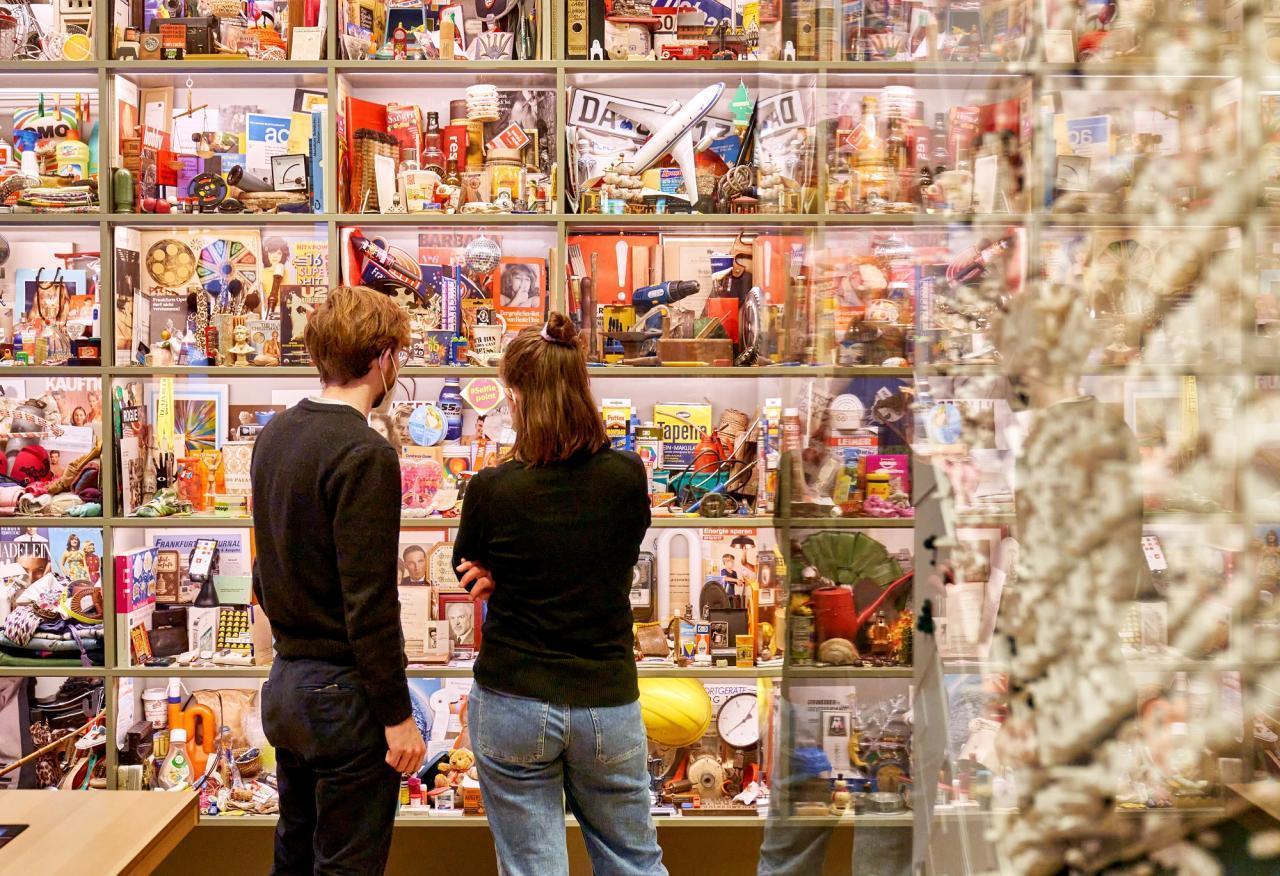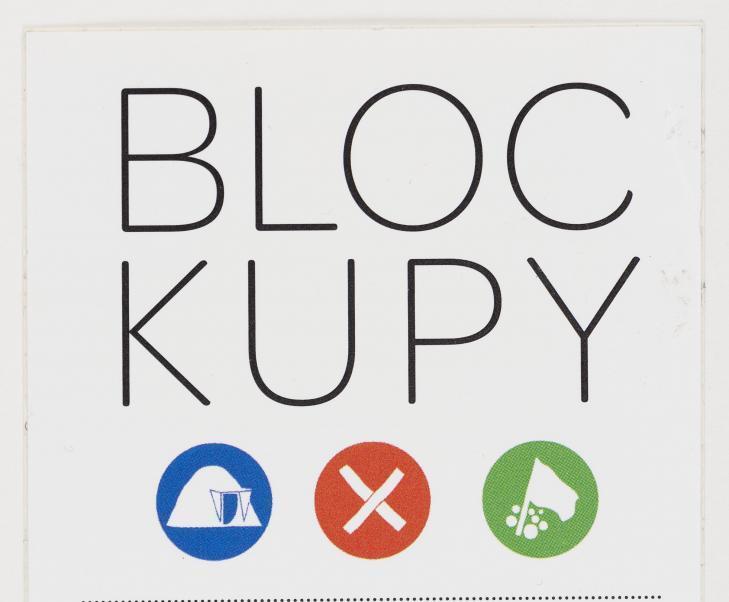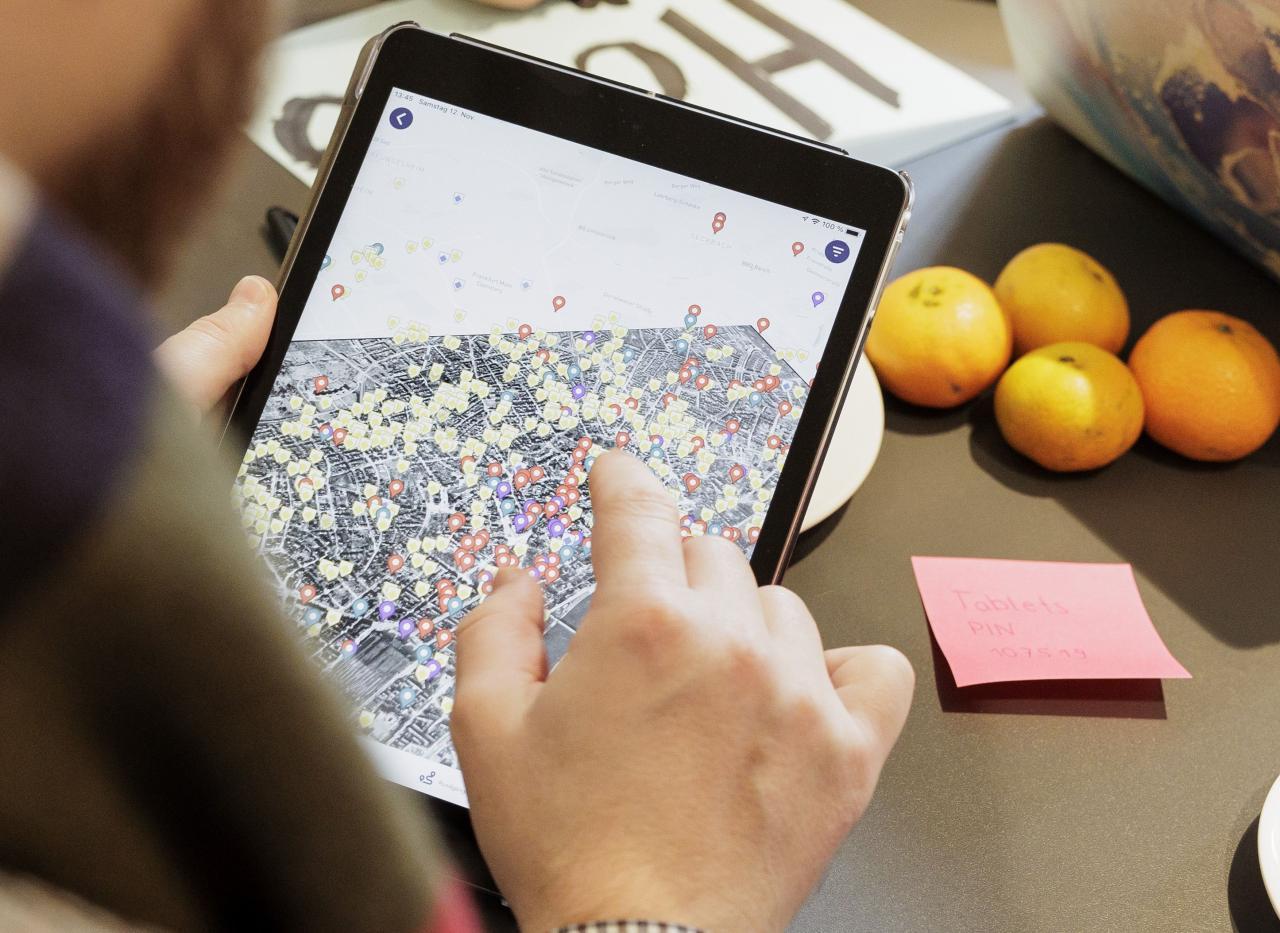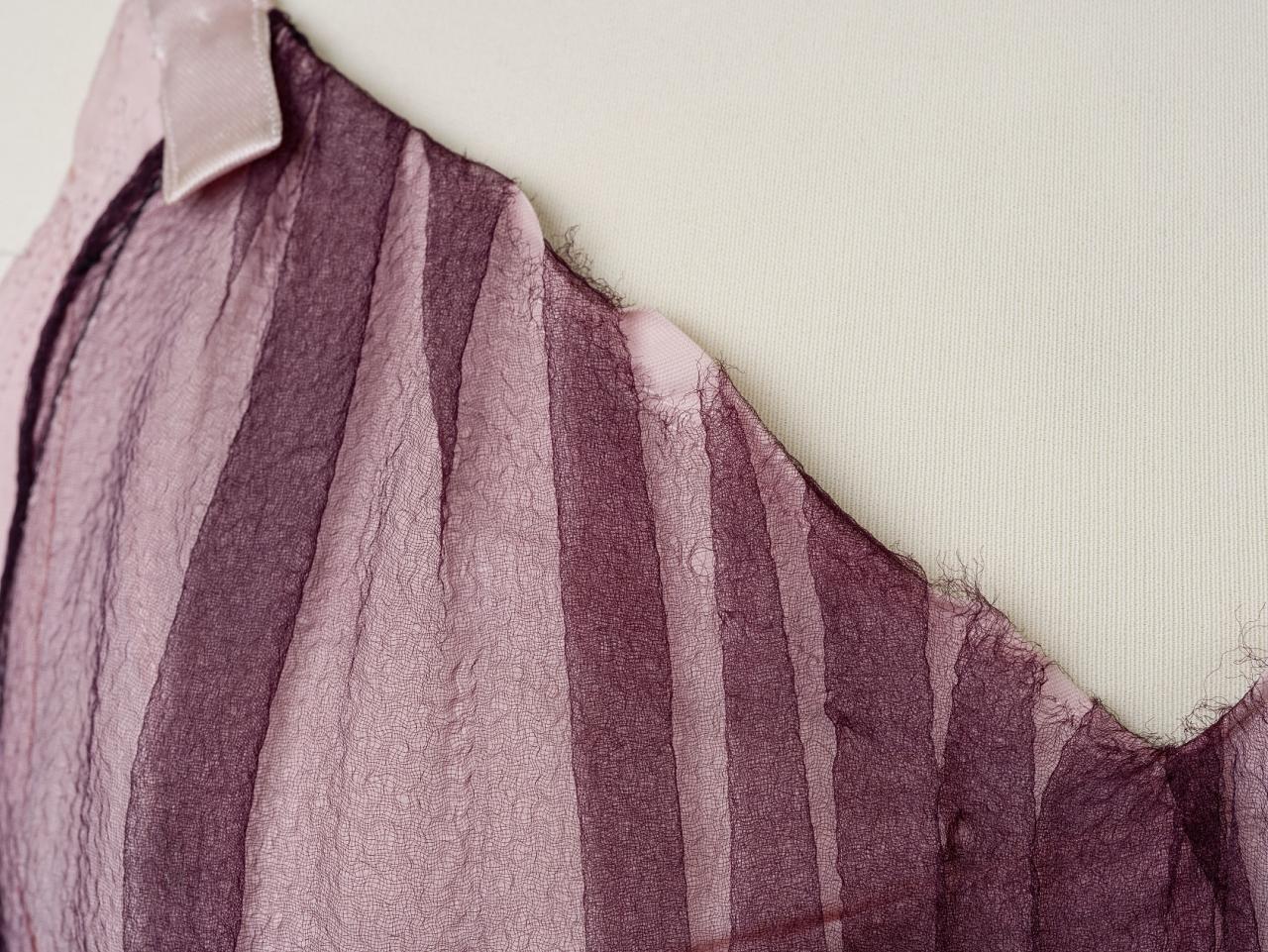Prizes, awards, sponsorships
On this page you will find a selection of awards, honors, and grants that the Historical Museum has received over the years. Specific project grants can be found on the pages of the respective projects.
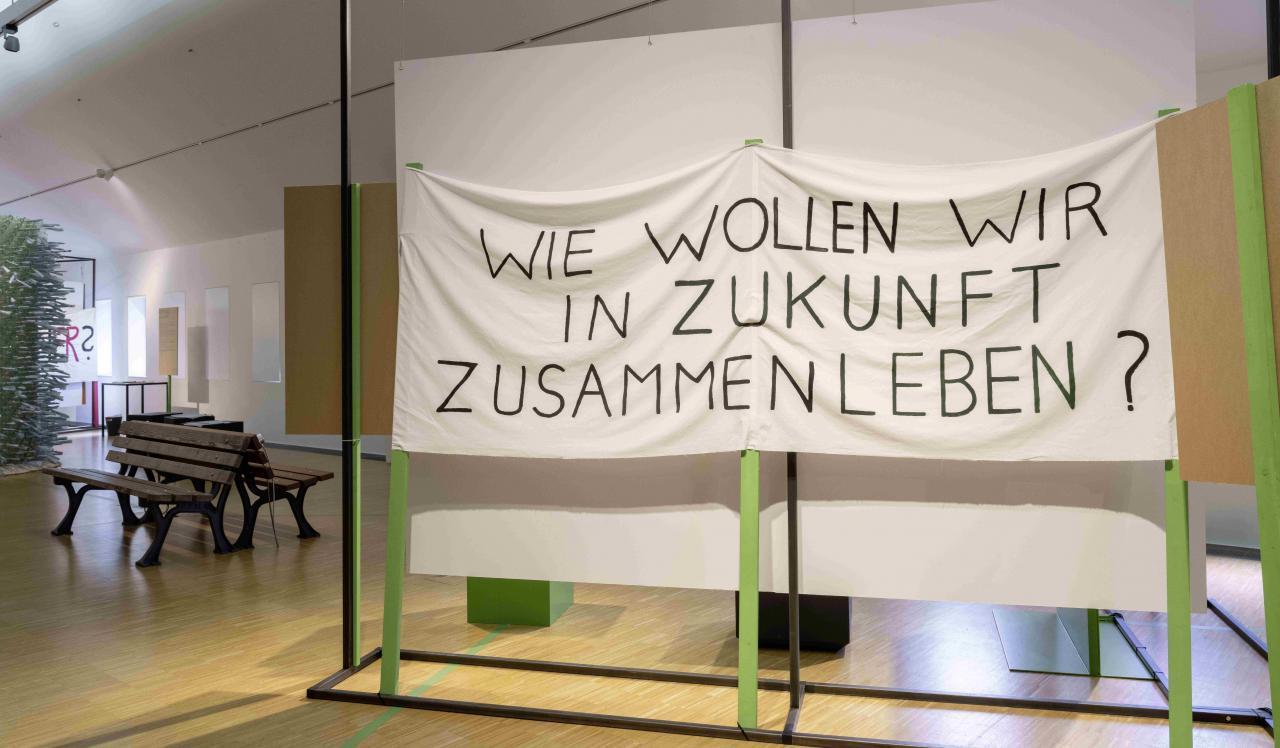
Commoning the Museum
June 5,.2025 In a joint project with the Dresden City Museum and the offices for social affairs and health of both cities, the Historical Museum is receiving future funding from the German Federal Cultural Foundation. The aim is to develop ideas on how museums can become a place for everyone and how the common good can be strengthened.
HMF Director Doreen Mölders: "We also want to become a relevant place for those people who are pushed to the urban and social margins due to low wages, educational inequality, high rents and consumer-oriented inner cities.
Frankfurt's Head of Department for Culture and Science, Ina Hartwig, sees great potential in this idea: "This approach is very convincing, especially as we live in a time in which our democratic values and our pluralistic society are all too often carelessly called into question. We therefore need new, creative approaches to do just that: To bring people who have previously had no access to art and culture and who may even feel excluded from it back into the fold and get them talking to each other. This is exactly what the joint concept of the two museums in Frankfurt and Dresden is designed to do. I am therefore delighted that they have now received funding from the German Federal Cultural Foundation and can begin their creative work."
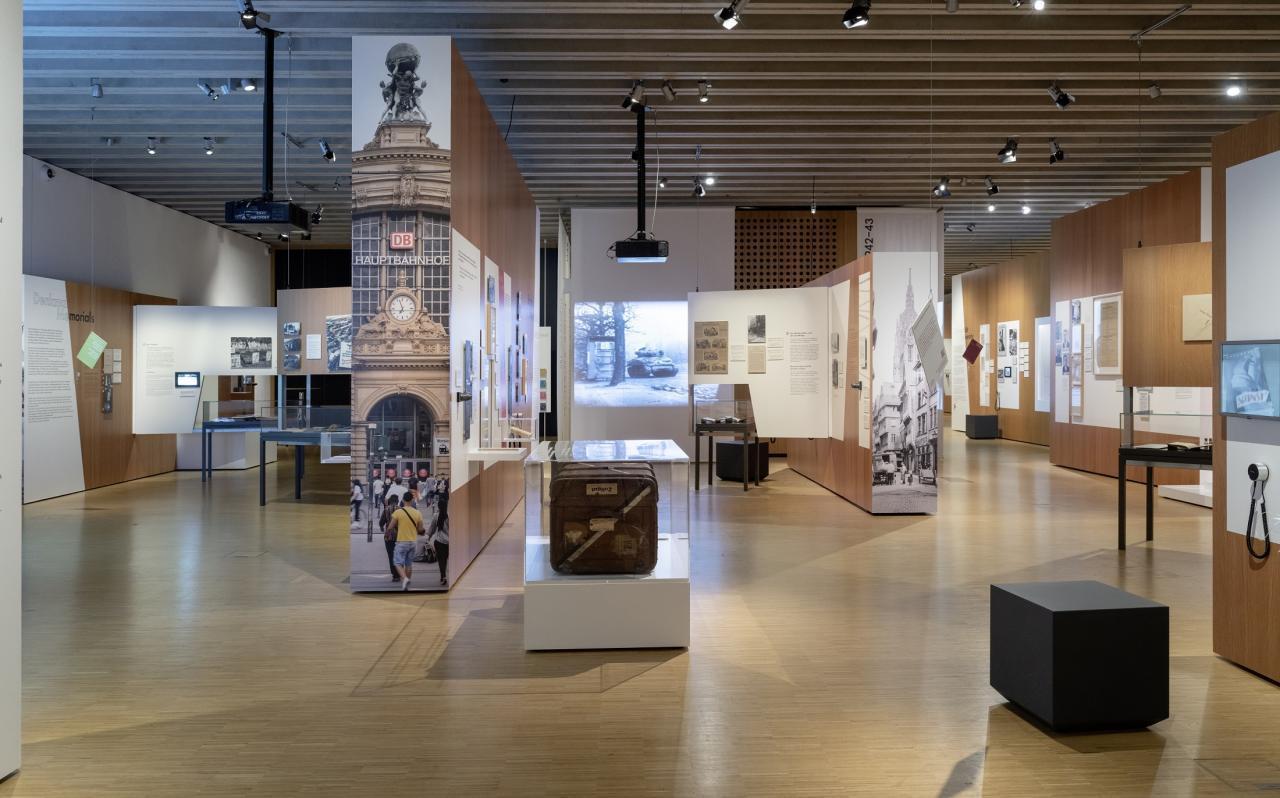
"Frankfurt and Nazism – A City Joins In" nominated for the Dr. Marschner Exhibition Award
For the first time, the HMF presented an overall show about Nazism in Frankfurt – with three exhibitions starting simultaneously from different perspective. The contemporary history exhibition "A City Joins In" dealt with how the city, which before 1933 was considered liberal and democratic and had the highest Jewish population in the Reich, was able to align itself so quickly and radically with the Nazis.
The stories presented in the exhibition illustrated how National Socialism shaped people's everyday lives. Options for action were highlighted, as were the consequences of political inaction or blind obedience for the victims. The exhibition dealt with participation, yet never lost sight of resistance.
Through the nomination we feel confirmed in our way to include the perspective and lifeworld of the visitors. In eye-to-eye encounters, it was possible to convey that a confrontation with the Nazi era – both individually and socially – is never "done", but is still and will always be of importance and concern.
A free visit to the exhibition in 3D-format is possible here.
The shortlist of the Dr. Marschner Exhibition Award 2023 can be found here.
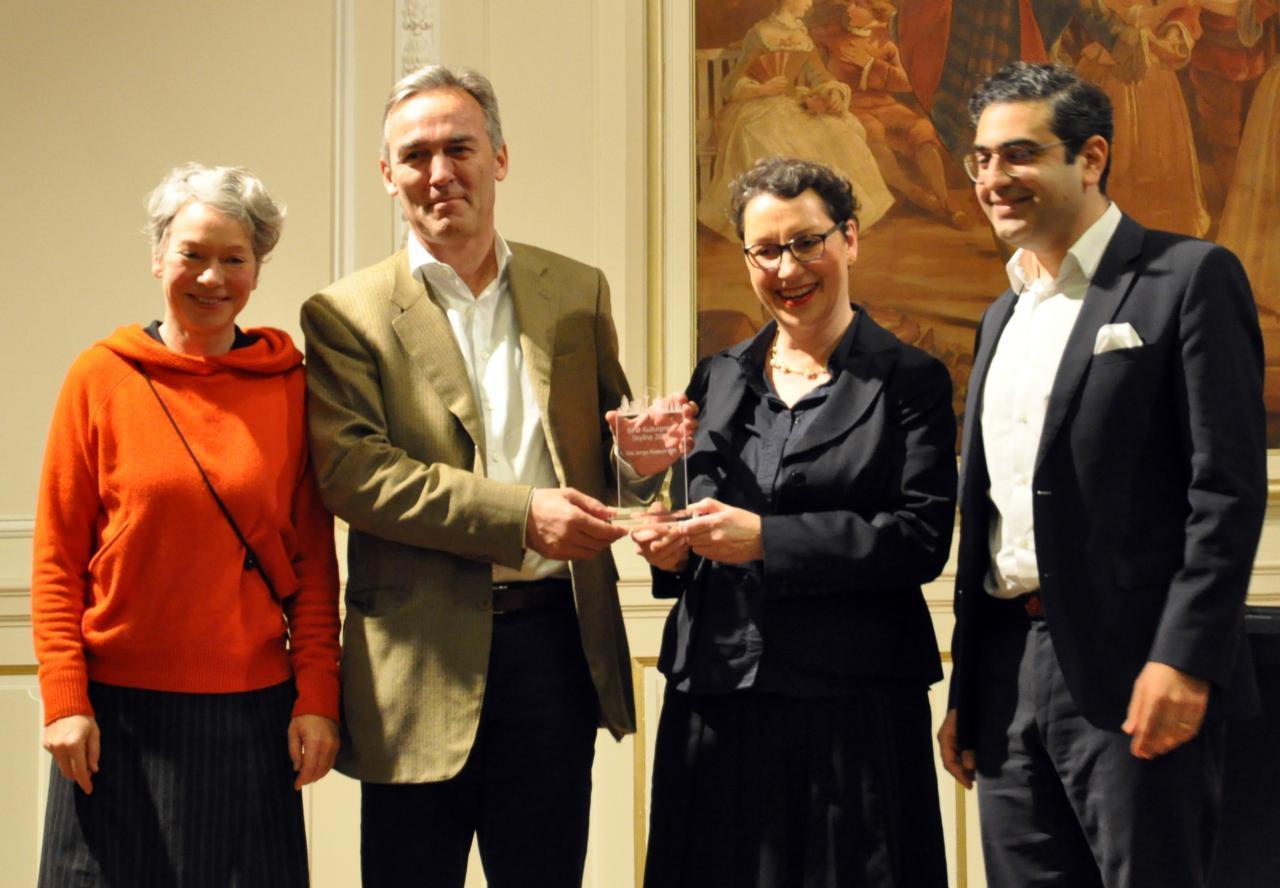
Skyline Culture Award for Young Museum für excellent outreach work
15.01.2023 "Europe's first children's museum (...) impressively shows how cultural participation can succeed at eye level. With its playful and interactive exhibitions, the museum team repeatedly sets new standards for cultural education. The unique combination of child- and youth-oriented offerings on historical play spaces and themes, workshops and family stations inspires many other museums in Germany and abroad," the jury said in explaining its decision.
Until February 4, 2024, the Young Museum Frankfurt is showing the first exhibition on the causes and effects of National Socialism designed especially for children: "Follow-Up: Frankfurt and Nazism". Based on the lives of Frankfurt children and young people, the exhibition provides insight into mentalities, scope for action and social structures during the Nazi era. The diversity of perspectives and experiences is told through interviews with contemporary witnesses, biographies and objects. Discussions about the continuing effects of the Nazi era and the current situation encourage visitors to examine their own points of view. The exhibition is suitable for people aged ten and older.
"A dedicated museum just for children and young people, that did not exist before the Young Museum in Frankfurt and it is still something special today. The Young Museum Frankfurt is unique," said the deputy chairwoman of the SPD and head of the department of culture Dr. Ina Hartwig. The Frankfurt SPD's "Skyline" culture prize, which is endowed with 2,500 euros, has been awarded every two years since 2001. In addition to the Young Museum, the employees of the Binding Brewery were also awarded the culture prize this year.
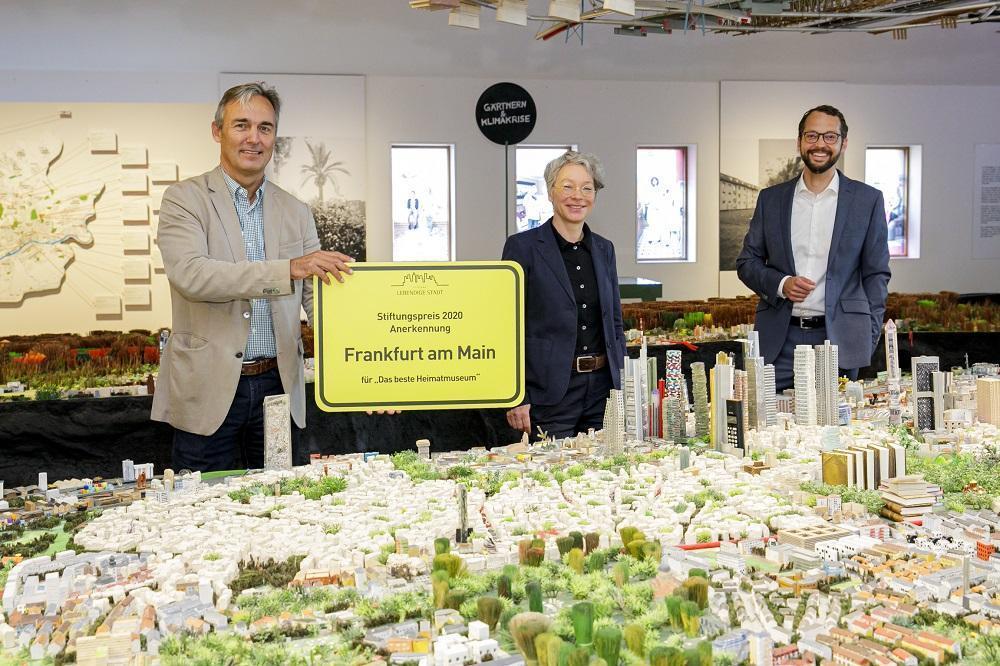
Award of the "Lebendige Stadt" Foundation
Out of a total of 251 museums, the HMF was honored by the "Lebendige Stadt" foundation on June 22, 2021. Worthy of the award were museums that act in a future-oriented manner by addressing societal changes. This inlcudes the use of modern technologies as well as inclusive educational programs to also appeal to a new audience and gain interest in the local history and culture of the place or region.
Here, the HMF stood out for the variety of offerings for visitors inviting them to participate and exchange. In particular, the offerings of the CityLab and the Young Museum were praised. The barrier-free media stations, tactile exhibits, and "hands on" stations also caught the jury's eye. The homepage, which not only provides a good overview of the museum's offerings, but also offers online tours and discussion panels, was especially praised.
Jan Schneider, City Councilor of Frankfurt am Main and member of the Board of Trustees of the "Lebendige Stadt" Foundation emphasized: "The Historical Museum impressively demonstrates how participation and inclusion can create a cultural place for everyone in a highly diverse urban society. Modern concepts inspire visitors and invite participation and exchange."
Dr. Ina Hartwig, City Councilor for Culture and Science in the Magistrate of the City of Frankfurt, is pleased: "The Historical Museum has been breaking new ground since its reopening in 2017. In its strong visitor orientation, it is taking its cue from the Anglo-Saxon and Scandinavian museum scene. The city of Frankfurt is proud that its new city museum has received this award."
The press release of the "Lebendige Stadt" Foundation can be found here.
Further information on the "Lebendige Stadt" Foundation can be found here.
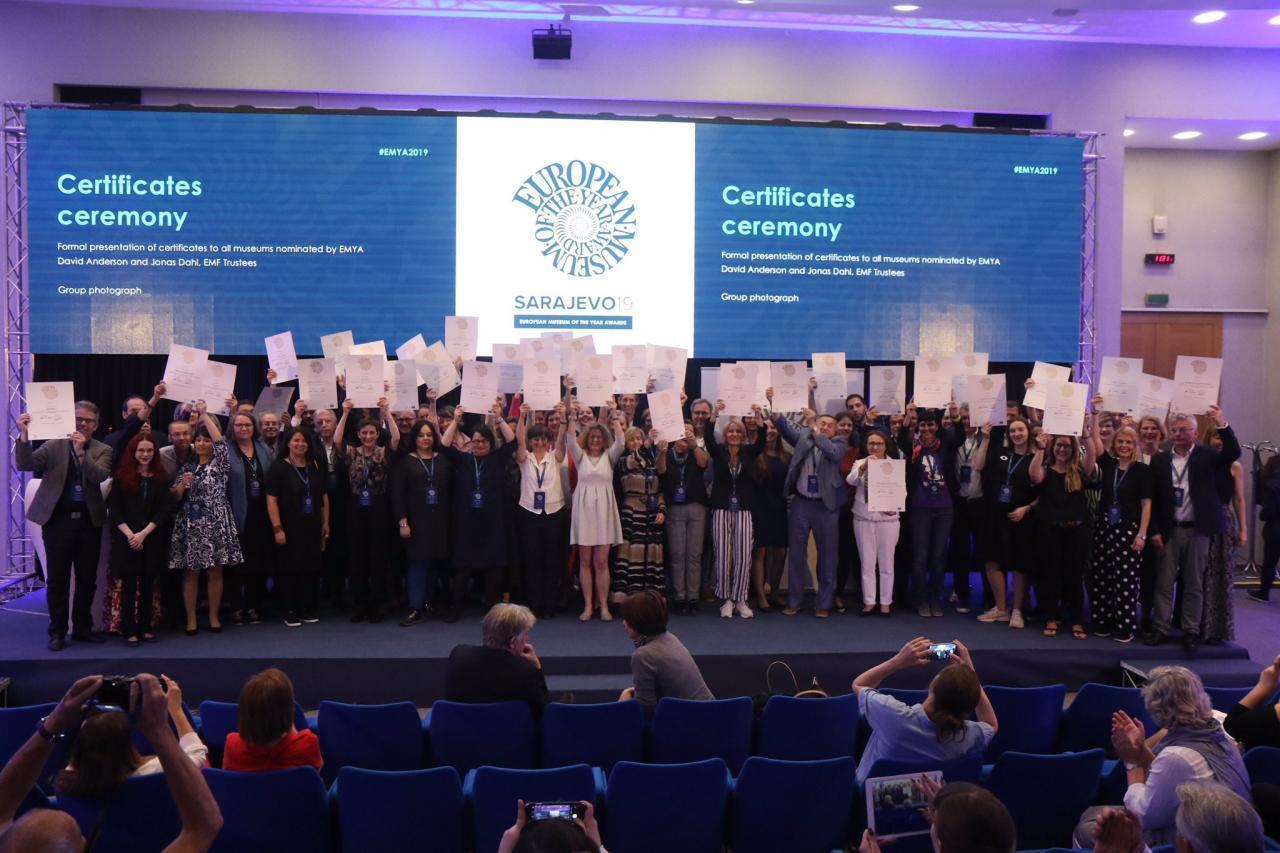
Nomination for the European Museum of the Year Award 2019
Every year, the European Museum Forum (EMF) honors one museum as European Museum of the Year. The EMYA honors special commitment to citizenship, democracy and human rights, bridging cultural, social and political boundaries, and sustainability. The EMYA was awarded in Sarajevo on May 25, 2019, and the HMF was in attendance.
ZukunftsGut-Award for Institutional Cultural Education 2019
In 2018, the Commerzbank Foundation's "ZukunftsGut Prize for Institutional Cultural Education" was awarded for the first time. Three out of 125 applicants from all over Germany were shortlisted by the jury. Among them was the Historical Museum Frankfurt. On Sept. 12, 2018, the HMF was awarded second place for its participatory strategy.
Together with the Historical Museum, the Staatsschauspiel Dresden was awarded first place and the Theater Oberhausen third place.
To the press release of the Department of Culture of the City of Frankfurt from 14.9.2018 click here.
To the press release of the Commerzbank Foundation of 13.9.2018 (award) click here.
For the press release of the Commerzbank Foundation from 6.6.2018 (nomination) click here.
lab.Bode-traineeship
As part of lab.Bode's initiative to strengthen outreach work in museums, the Historical Museum Frankfurt was able to establish a volunteer position in outreach for the first time. Danica Brenner was appointed to this position on August 1, 2018.
During her studies in art history, education, and French literature, Ms. Brenner worked on various exhibition and research projects and did museum internships in Germany and abroad. She served as a mentor, lecturer, and research assistant at the University of Trier, where she earned her doctorate in art history after research fellowships in Mainz and Los Angeles. For the Historical Museum Frankfurt, she most recently worked as a freelancer for the exhibition „Das Meisterstück – Kunst kommt von Können. Malerausbildung von der Zunft zur Akademie “. As part of her two-year traineeship, she will now design and implement educational concepts for this exhibition. In addition, she will develop, among other things, a theme tour and didactic materials for art-historically significant exhibits and collections of the Historical Museum.
lab.Bode supports 23 academic traineeships nationwide in the field of education and outreach. The accompanying modular advanced training program with work shadowing in Berlin was developed in cooperation with the Federal Academy for Cultural Education in Wolfenbüttel. It serves as an examination of the fundamentals of mediation work and offers support in contextualizing, reflecting on, and documenting one's own activities in art mediation. The goal is to further develop museum education in the direction of art mediation, especially for young people. To this end, new forms of mediation are being tested in the laboratory at the Bode Museum in Berlin in cooperation with schools and then implemented at the museum itself.
The outreach work of the Historical Museum is already multifaceted: As a participatory museum, it actively involves visitors in the CityLab exhibtions of the permanent exhibition "Frankfurt Now!" among other things. From the very beginning, the HMF was oriented as an inclusive museum that appeals to all population groups with its design, program and collections. To this end, museum education, curators and museographers work closely together in the conception and implementation of the mediation formats of special and permanent exhibitions in order to make personal mediation, multimedia guides and other offerings inclusive.
Guided tours, city walks, workshops and various theme tours are aimed at children, young people and adults of different abilities and cultural backgrounds. In addition, the multimedia guide offers different tours through the exhibition, target group specific and theme oriented. The Young Museum, which opened in 1972 as a "children's museum", also offers interactive special exhibitions that are specifically geared to the lives and experiences of children and young people. This is complemented by the teaching of urban history and project work in the museum's own workshops, as well as family traces through the exhibitions of the Historical Museum. Through Ms. Brenner's work as a lab.Bode volunteer, the museum's pedagogy is now being further developed in the direction of art education and new projects are being implemented.
Lab.Bode – Initative for Strengthening Eduacational Work in Museums is a joint program of the German Federal Cultural Foundation and the National Museums in Berlin. Further information on the work of the initiative can be found here.

Programme 360°
As part of the funding program "360° – Fund for Cultures of the New Urban Society" of the German Federal Cultural Foundation, the Historical Museum Frankfurt was able to establish a curator position for diversity and migration, limited to four years. Puneh Henning was appointed to this position on June 1, 2018. Since november 2018, she has been supported by Ismahan Wayah.
Ismahan Wayah sudied English, History and Philosophy at the University of Mainz. From 2014 to 2015, she worked as a research assistant at the Department of English, Postcolonial and Media Studies at the University of Münster. In 2016, she received a doctoral scholarship at the Evangelisches Studienwerk Villigst and worked in discrimination-critical educational work for various institutions. In addition to the 360° position, she is doing a PhD in Anglophone Literary Studies on contemporary Muslim-Diasporic novels.
Around 22.5. million people in Germany have a migration background. They have left a lasting mark on the country's history and society and will continue to do so in the future. For this reason, migration is of particular relevance to Germany as a country of immigration. With its funding measure, the Federal Cultural Foundation is responding to the nationwide discussion that social diversity is only reflected to a limited extent in the programs, staff and audiences of cultural institutions. With the fund, it therefore supports cultural institutions of all disciplines that address issues of cultural diversity within the institutions themselves. In this context, the Historical Museum Frankfurt, which sees itslef as a museum for the city, would like to continue to develop into a central meeting place in which the active participation of people with culturally diverse backgroups in museum work is made possible.
Large cities in particular – such as the Main metropolis Frankfurt – offer a high level of social diversity. In Frankfurt, more than 50% of residents have a migration background. It is the major city with the highest proportion of migrants in Germany. Cultural diversity is the defining characteristic of urban society, making the city itself the focal point and topic on which everyone can communicate. The goal of the funding measure is to provide a basis for continuous cooperation between the actors on the levels of program, audience and museum staff over a period of four years.
In addition to collecting underrepresented sotires, the goal is also to enable participation and co-creation in the insitution itself, in narratives about urban history, and in the representation of urban society. In this way, the museum aims to become a place for social and cultural debate for a more diverse range of actors in urban society.
For more information from the German Federal Cultural Foundation on this project, click here.
Hessian State Award Universal Design
The HMF was awarded the recognition prize of the Hessian State Prize "Universal Design 2018" for the implementation of its mission statement as an "inclusive museum" on November 20, 2018.
As an "inclusive museum", the HMF is committed to addressing all segments of the population with its exhibition design, programming, and collection. Accessibility is an important issue for the museum, for which it was awarded the Hessian State Prize "Universal Design 2018" by the Hessian Ministry of Finance and the Ministry of Social Affairs and Integration.
With the opening of the new exhibition building in 2017, the HMF also further developed its museum concept. The goal was to focus on and implement the different needs of the visitors. By working with experts in their own right, who accompanied the HMF on its way, to becoming an inclusive museum, an exhibition facility was created that can convey the content in a variety of ways. A tactile trail makes the entire museum accessible to blind and visually impaired people. Tours in easy language, German sign language and in audio description offer diverse multimedia access on the loaner device or on one's own smartphone. A series of tactile objects an "hands-on stations", convey the exhibitions in a playful way and according to a "multi-senses principle". All visitors can benefit from the inclusive offers, they are not a special offer for people with disabilites. Rather, they are an expression of our inclusive attitude and the answer to the heterogeneity of museum visitors.
This comprehensive concept, which understands inclusion as a universal human rights principle of social coexistence, is unique in the Hessian museum landscape and was therefore deemed worthy of an award by the jury.
The Hessian State Prize is awarded every two years to companies that promote universal design in a special way. The patron is the Prime Minister of Hesse, Volker Bouffier.
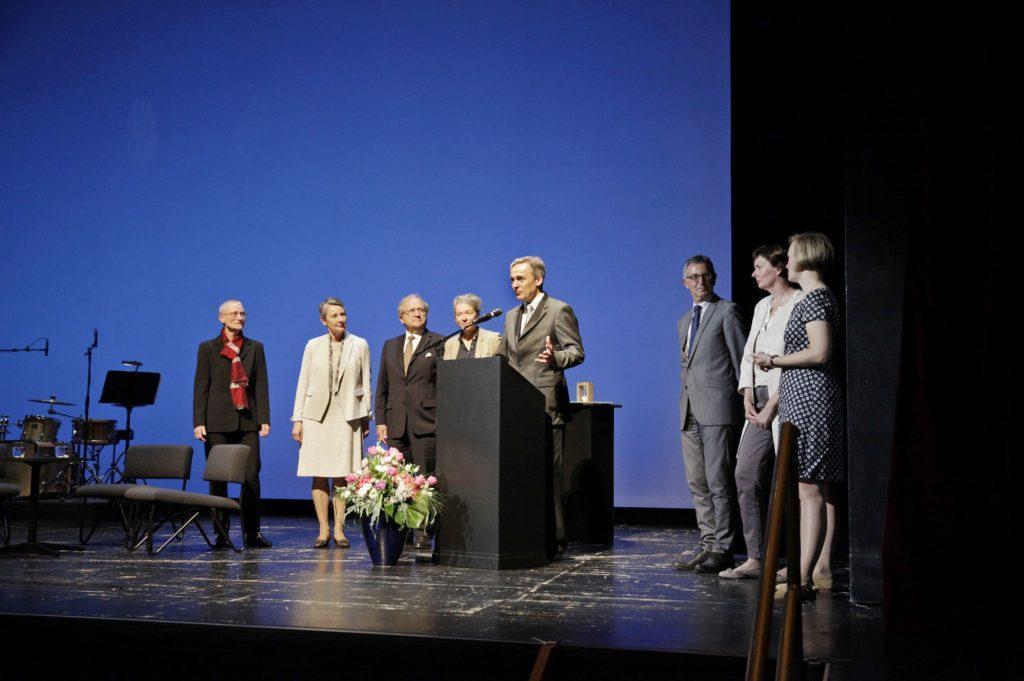
Kairos-Award 2018 of the Alfred Toepfer-Stiftung F.V.S.
On the occasion of the award, Nil Varol produced a portrait of Jan Gerchow and the new Historical Museum.
Click here for the press release of the Alfred Toepfer Foundation.

